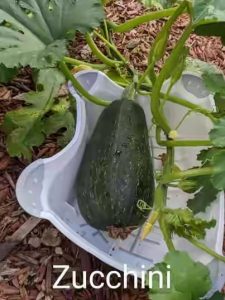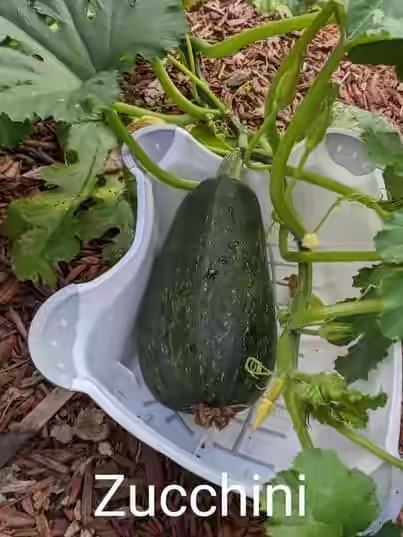What is zucchini called in Nigeria? What is zucchini called in Hausa, Igbo and Yoruba? See the health benefits of zucchini.
See zucchini is not a plant that originated from Nigeria so there is really no Nigerian, yoruba, igbo or Hausa name for zucchini. The health benefits of zucchini has has made many Nigerians fall in love with the plant hence the want to know its name in Hausa, igbo or yoruba language ..
ASSIGNMENT: WHAT IS ZUCCHINI CALLED IN NIGERIAN LANGUAGES? PLEASE LEAVE TOUR ANSWER IN THE COMMENTS SECTION.
Now, even though we don’t know the Nigerian name of zucchini, it is important for us to at least be informed of its health benefits….
Zucchini is a type of squash that can be eaten all year round. It has many benefits and it’s easy to prepare.
Zucchini is rich in potassium, vitamin A and C, folate, manganese, and fiber.
Eating zucchini regularly will help maintain healthy blood pressure levels as well as promote weight loss by being high in water content.
Zucchinis is has a low-calorie count as well as being low in sodium.
Zucchinis are even considered among the “superfoods” because they have so many different benefits.
Health benefits of zucchini squash every NIGERIAN should know.
Boost Immunity
Zucchini squash is a great source of vitamin C, which may be one of the best ways to boost your immune system especially in the era of covid19 pandemic. Vitamin C, also known as ascorbic acid, may help stimulate the production of white blood cells, which defend the body from pathogens and other unwanted germs/microbes. Furthermore, vitamin C is an important part of the body’s development, in terms of muscle tissue, blood vessels, teeth, skin, and organs. Vitamin C also works as an antioxidant, helping to protect the body from serious conditions, like heart diseases.
Improve Vision
Vitamin A may be found in very large quantities in zucchini squash. And, while that isn’t an unusual vitamin to find, high levels of it mean high levels of beta-carotene as well, which is a very good antioxidant to have in our system. Beta-carotene, specifically, might have been directly linked to reducing oxidative stress in the eyes, which means that cataracts and macular degeneration can be prevented with proper intake of the vitamin A in zucchini.

PACKED FULL WITH VITAMINS
Zucchini squash is a great source of vitamins, including vitamins C, A, B-6, folate, thiamine, and niacin. Its vitamin C concentration is particularly high, making it a healthy option that provides many physical benefits. Specifically, it benefits a person’s immune and skeletal systems, and prevent issues such as cancer and heart disease. To make the most out of the vitamin C in your zucchini, avoid exposing it to air or water as much as you can. Try using it as soon as you can after getting it and while you are cooking, consider baking it.
HIGH MINERAL CONTENT
In addition to containing a lot of vitamins, zucchini squash also has a lot of minerals like calcium, iron, and zinc. Also, acorn squash is packed with potassium and magnesium, with 26% and 22% of the respective recommended daily amounts of these minerals per one cup serving. These minerals work in tandem to decrease a person’s chances of stroke, diabetes, and other health issues.
CONTAINS LOTS OF FIBER
Not only does zucchini squash have a large number of vitamins and minerals, but it is a great source of fiber too! Per half-cup serving, acorn squash has five grams of dietary fiber in it, which can be used to maintain your cholesterol and blood sugar levels. A fiber-rich diet can help stop health issues like gastrointestinal disorders and stroke.
RICH IN ANTI-OXIDANTS
Antioxidants, which are known for their role in preventing cell damage by preventing oxidation, are found in zucchini squash as well. They can help promote health and consuming foods that contain antioxidants can lead to your risk for cardiovascular issues lowering.
This article is the intellectual property of www.nimedhealth.com.ng
























